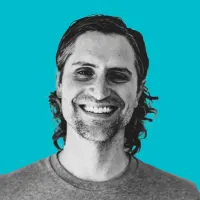This website uses cookies, belonging to us or third parties, to improve your experience, optimize performance and our services, understand your usage through analytics, and personalize advertising tailored to your interests on our site and third party sites. By continuing to use our site, you consent to such use of cookies. Please visit our Terms of Use and Privacy Policy where you can find out more about cookies and how to manage them.



Fear is usually a huge obstacle to leading an honest and fulfilled life. But what if, rather than viewing fear as something to be avoided or conquered, we thought of it as an essential part of the human experience? In this situation, mindfulness training may be beneficial since it allows us to examine bravery and fear in the context of our daily lives.
The practice of mindfulness encourages us to face our fears head-on, to sit with them, and to discover their presence within us. By doing this, we start to understand that bravery is the result of our determination to confront fear squarely and overcome it. We discover a revolutionary way of living—one that enables us to reach our greatest potential and live authentically—as we blend fear and bravery.
By engaging in mindfulness exercises, we develop an appreciation for fear as a useful guide that points out our edges and encourages us to explore the uncharted. It teaches us that courage and fear are just two sides of the same coin, not opposing forces. Leaning into our concerns allows us to achieve a higher degree of self-awareness, resilience, and growth.
Let's keep in mind that fear is not something that can be completely eliminated or conquered as we travel the path of awareness. Instead, it is a call to completely embrace our humanity, respect the knowledge it brings, and learn about the bravery that every one of us possesses.

Fear is usually a huge obstacle to leading an honest and fulfilled life. But what if, rather than viewing fear as something to be avoided or conquered, we thought of it as an essential part of the human experience? In this situation, mindfulness training may be beneficial since it allows us to examine bravery and fear in the context of our daily lives.
The practice of mindfulness encourages us to face our fears head-on, to sit with them, and to discover their presence within us. By doing this, we start to understand that bravery is the result of our determination to confront fear squarely and overcome it. We discover a revolutionary way of living—one that enables us to reach our greatest potential and live authentically—as we blend fear and bravery.
By engaging in mindfulness exercises, we develop an appreciation for fear as a useful guide that points out our edges and encourages us to explore the uncharted. It teaches us that courage and fear are just two sides of the same coin, not opposing forces. Leaning into our concerns allows us to achieve a higher degree of self-awareness, resilience, and growth.
Let's keep in mind that fear is not something that can be completely eliminated or conquered as we travel the path of awareness. Instead, it is a call to completely embrace our humanity, respect the knowledge it brings, and learn about the bravery that every one of us possesses.
You May Also Like

Thomas McConkie


